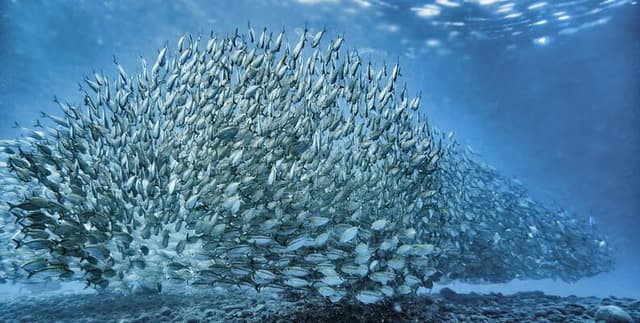Oceanic Research Cruise Observation Logs
Data Science and Analytics
Tags and Keywords
Trusted By




"No reviews yet"
Free
About
Documents marine bird and mammal observations collected aboard various research cruises, including the California Cooperative Oceanic Fisheries Investigations (CalCOFI), National Marine Fisheries (NMFS), and North Pacific Continuous Plankton Recorder (CPR) cruises. The data includes temporal and spatial information, the number of organisms observed, and their behaviour, recorded along the cruise transects. This material is essential for research into the interdependent aspects of the marine environment, helping scientists understand the broad influences of ocean currents, fishing practices, coastal development, and climate change on marine food webs and ecosystem processes.
Columns
The data tables typically include columns detailing the spatial and observational records:
- GIS key: A unique identifier used to link specific observations to a transect location.
- Species: The code identifying the observed organism, utilising the Farallon Species codeset. This covers numerous marine birds (e.g., Brown Pelican, Black-footed Albatross, Common Murre) and mammals (e.g., Blue whale, Common dolphin, California sea lion).
- Behavior: A code defining the activity of the organism, referencing the Farallon Animal Behavior codeset (definitions include 'In flight', 'On/in the water', 'Feeding', 'Ship following', and 'Bow-riding').
- Count: The recorded number of organisms observed during the survey event.
Distribution
The data consists of six tables—a transect log and observation log pairing for each of the three types of cruises (CalCOFI, NMFS, and CPR). Data files are typically available in CSV format. For instance, one observation log file contains approximately 23.0k valid records. Updates to the dataset are expected to occur annually.
Usage
This information is ideal for applications requiring deep ecological insight:
- Climate Change Research: Analysing the effects of natural and human-based climate change on marine ecosystems.
- Ecosystem Modelling: Investigating the influences of ocean currents and fishing practices on marine food webs.
- Population Studies: Tracking population levels and distributional changes for specific marine bird and mammal species over time.
- Geospatial Analysis: Mapping species distribution and density along cruise transects.
Coverage
The data collection focuses geographically off the coast of southern and central California, covering areas related to CalCOFI and NMFS cruises, with additional records from North Pacific Continuous Plankton Recorder cruises. Observations span a significant time range, beginning in 1987 (CalCOFI) and 1996 (NMFS), with collection ongoing, while CPR data covers 2003 through 2006. The scope includes a detailed codeset for numerous marine birds and mammal species.
License
CC0: Public Domain
Who Can Use It
Intended users include:
- Marine Biologists and Ecologists: For studying animal behaviours, habitat use, and population dynamics.
- Environmental Policy Makers: For assessing the impact of human activities like fishing and coastal development.
- Data Scientists: For time series analysis and exploratory data analysis of large marine census records.
Dataset Name Suggestions
- Marine Wildlife Census Observations: CalCOFI, NMFS, and CPR Data
- Coastal California Marine Bird and Mammal Survey Time Series
- Oceanic Research Cruise Observation Logs
Attributes
Original Data Source: Oceanic Research Cruise Observation Logs
Loading...
Free
Download Dataset in ZIP Format
Recommended Datasets
Loading recommendations...
